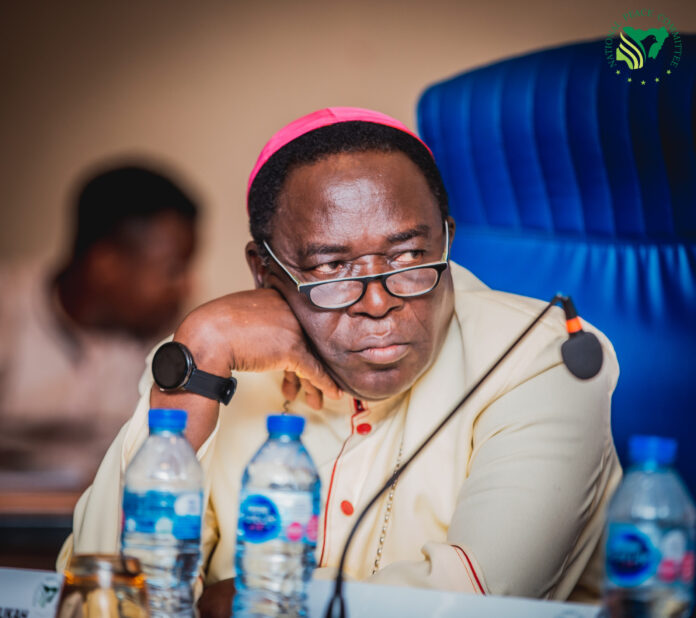The Catholic Bishop of Sokoto Diocese, Matthew Hassan Kukah, has delivered a powerful Christmas message urging Nigerians to reject the figurative “darkness” of corruption, nepotism, and greed for the transformative “light” of unity, accountability, and love. Speaking during a service at the Holy Family Cathedral in Sokoto, the bishop painted a poignant picture of a nation grappling with the consequences of its choices.
A Nation in Shadows
Bishop Kukah lamented Nigeria’s stagnation, attributing it to a collective decision to prioritize self-interest over the common good. “Nigeria’s lack of visible and measurable progress is tied to the fact that we have chosen darkness rather than light,” he declared.
He elaborated on the metaphor, urging Nigerians to reflect on what the country could achieve if transparency and integrity permeated public service, politics, and daily interactions. “Imagine if we let the light shine on our public service, on our politics, on our individual, community, and national life, and on our public institutions,” he said, emphasizing that true greatness requires embracing values that uplift the nation as a whole.
The Chains of Ethnicity and Nepotism
Kukah highlighted deep-rooted issues such as ethnicity, nepotism, and greed as barriers to Nigeria’s progress. He referenced the national anthem’s call for unity despite diversity, pointing out the irony in the country’s inability to embody its aspirational ideals. “Diversity is a gift from God. Let us use it effectively as a tool for national mobilization and cohesion,” he advised, urging citizens to view differences as strengths rather than sources of division.
The bishop’s message also resonated with a broader Christian ethos, as he reminded the congregation of the fundamental teachings of their faith. “They will know we are Christians by our love,” he said, challenging Nigerians to manifest this love through their actions and choices.
Youths at the Forefront
Recognizing the importance of youth in shaping the future, Bishop Kukah lauded legislative milestones such as the 2018 “Not Too Young to Run Bill,” which lowered the age requirements for political participation. He noted, however, that systemic barriers like high costs and weak internal democracy within political parties continue to stifle young people’s engagement.
“The youth have a significant role in changing the trajectory of this nation,” he said. “We must create an environment where their talents and energies are harnessed effectively.”
Kukah also commended recent educational reforms, particularly the enactment of the 2024 Student Loan Act and the establishment of the Nigerian Education Loan Fund. He expressed optimism that these initiatives would create more opportunities for young Nigerians, including those pursuing vocational and technical skills.
“It is significant that the Act does not limit access to university students alone,” Kukah said. However, he cautioned against potential pitfalls such as bureaucratic delays and favoritism, calling for a transparent and inclusive process to ensure equitable access to quality education.
Security Concerns and the Path Forward
The bishop’s message was not without mention of the country’s security challenges, which he described as a persistent threat to national stability and development. He urged the government and citizens alike to prioritize peace and unity, emphasizing that these values are crucial for overcoming insecurity and fostering progress.
“Security is not just the absence of war,” Kukah said, “but the presence of justice, equity, and opportunities for all.”
He called on Nigerians to adopt a mindset of collective responsibility, urging them to move beyond blame and work together to build a brighter future. “Let us choose light, unity, and love,” he concluded, “because only in these can we find the true path to development and peace.”

